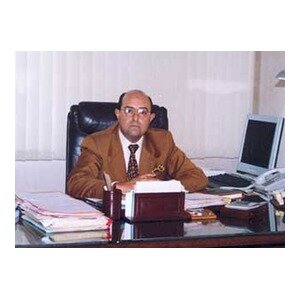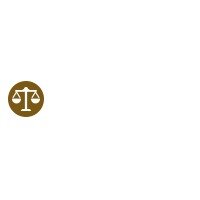Best Education Law Lawyers in Marrakesh
Share your needs with us, get contacted by law firms.
Free. Takes 2 min.
List of the best lawyers in Marrakesh, Morocco
About Education Law in Marrakesh, Morocco
Education Law in Marrakesh, Morocco, encompasses the statutes, regulations, and case law governing educational institutions and the administration of education services. It addresses issues related to educational standards, the rights and obligations of students and educators, and the operation of public and private schools. Moroccan education law ensures free primary education and gradually works towards enhancing the quality and accessibility of education at all levels, from preschool to higher education. Given Marrakesh's diverse culture and historical significance, local applications of education law also incorporate various linguistic and cultural considerations.
Why You May Need a Lawyer
There are several situations where individuals or organizations may seek legal assistance in the field of Education Law:
- Disputes between schools and parents: This might involve disagreements about admissions, expulsions, or special educational needs.
- Teacher-student conflicts: Legal disputes may arise from issues such as disciplinary actions, allegations of misconduct, or violations of rights.
- Employment issues: Teachers and other school staff may face employment-related legal challenges, including disputes over contracts or unfair dismissals.
- Policy compliance: Educational institutions might require legal counsel to ensure compliance with local and national education regulations.
- Student rights issues: Students or guardians may seek legal aid regarding issues of discrimination or violation of educational rights.
Local Laws Overview
Education Law in Marrakesh is shaped by national laws passed by the Moroccan government and regional regulations. Key aspects include:
- Right to Education: Morocco enshrines the right to free primary education and strives towards improving secondary and higher education accessibility.
- Private and Public Education Systems: Regulation of both sectors to ensure equitable standards and access.
- Standards and Curriculum: Laws mandating curriculum standards and the inclusion of various cultural and linguistic elements.
- Special Needs Education: Legal requirements for accommodating students with disabilities or special needs.
- Teacher Qualifications and Rights: Regulations concerning the professional standards and rights of educators.
Frequently Asked Questions
What are my rights as a parent regarding my child's education in Marrakesh?
Parents have the right to ensure their children receive free primary education and can engage in decisions regarding school policies and disciplinary actions affecting their children.
What legal actions can I take if my child faces discrimination at school?
Legal recourse can involve filing complaints with educational authorities or pursuing litigation with the assistance of a lawyer specializing in education law.
Can a private school refuse admission to my child?
While private schools have more autonomy in admission decisions, they must adhere to anti-discrimination laws and provide legitimate reasons for refusal.
What are the legal obligations of schools regarding students with special needs?
Schools are required to accommodate students with disabilities through tailored educational plans and by providing support services as mandated by law.
How can I ensure that a school adheres to the local curriculum standards?
You can request to view the school's accreditation status and compliance records with the local education department.
What legal protections do teachers have regarding employment disputes?
Teachers are protected by labor laws ensuring fair treatment, contractual agreements, and the right to dispute unjust dismissals or disciplinary actions.
Is homeschooling allowed in Marrakesh, and what are the legal requirements?
Homeschooling is permitted but must adhere to specific regulations and curriculum requirements set by the Ministry of Education.
What steps should I take if I experience abuse or misconduct at a school?
You should report the incident to school authorities immediately and consider consulting with a lawyer for legal guidance on further actions.
What language rights are students entitled to in Marrakesh schools?
Students have the right to be educated in Morocco's official languages, Arabic and Amazigh, with French often used as a second language due to historical and practical considerations.
How can I appeal a decision made by the school board?
Appeals can be lodged through the appropriate education department, often requiring legal representation to ensure adherence to proper procedures and justifications.
Additional Resources
For those seeking more information or assistance, consider reaching out to the following:
- The Moroccan Ministry of National Education, Vocational Training, Higher Education, and Scientific Research: Offers guidance on regulations and policies.
- Local Education Authorities in Marrakesh: Provide regional-specific information and resources.
- Non-Governmental Organizations (NGOs): Such as the Moroccan Observatory for Human Rights, which may offer advocacy and support in education-related cases.
Next Steps
If you require legal assistance in Education Law, consider the following steps:
- Research and consult: Look into local law firms specializing in education law or consider community legal aid services.
- Prepare documents: Gather necessary documentation, such as contracts, correspondence, and any relevant evidence of disputes.
- Schedule consultations: Meet with lawyers to discuss your situation and explore your options.
- Engage in mediation: Where possible, attempt mediation as a cost-effective method of resolving disputes.
- Pursue litigation: If necessary, pursue legal action through the courts to protect your or your child’s educational rights.
Lawzana helps you find the best lawyers and law firms in Marrakesh through a curated and pre-screened list of qualified legal professionals. Our platform offers rankings and detailed profiles of attorneys and law firms, allowing you to compare based on practice areas, including Education Law, experience, and client feedback.
Each profile includes a description of the firm's areas of practice, client reviews, team members and partners, year of establishment, spoken languages, office locations, contact information, social media presence, and any published articles or resources. Most firms on our platform speak English and are experienced in both local and international legal matters.
Get a quote from top-rated law firms in Marrakesh, Morocco — quickly, securely, and without unnecessary hassle.
Disclaimer:
The information provided on this page is for general informational purposes only and does not constitute legal advice. While we strive to ensure the accuracy and relevance of the content, legal information may change over time, and interpretations of the law can vary. You should always consult with a qualified legal professional for advice specific to your situation.
We disclaim all liability for actions taken or not taken based on the content of this page. If you believe any information is incorrect or outdated, please contact us, and we will review and update it where appropriate.










